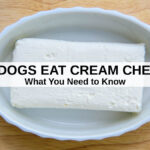How Do Dogs Get Vitamin D
Dogs are wonderful companions that bring joy and happiness to our lives. They are loyal, loving, and always eager to please. But like all living creatures, dogs need specific nutrients to stay healthy, such as vitamin D. This essential vitamin plays a vital role in many bodily functions, from bone growth to immune system health. So, how do dogs get vitamin D? Let’s explore.
Firstly, it is important to understand what vitamin D is and why it is so crucial for dogs’ health. Vitamin D is a fat-soluble vitamin that helps the body absorb calcium and phosphorus. These minerals are essential for building strong bones and teeth. Vitamin D also supports the immune system, regulates insulin levels, and helps maintain healthy muscles and nerves.
Unlike humans who can get vitamin D from sunlight exposure, dogs have different ways of obtaining this vital nutrient. However, similar to humans, a lack of vitamin D can lead to serious health problems for dogs.
One way that dogs can get vitamin D is through their diet. Many dog foods are fortified with vitamin D, which means that it has been added during the manufacturing process. It is essential to check the label of your dog’s food to ensure that it contains adequate amounts of vitamin D.
Another way that dogs can acquire vitamin D is through supplements prescribed by a veterinarian. However, it is important not to give your dog supplements without consulting with a vet first as too much vitamin D can be toxic for dogs.
Finally, some natural food sources contain substantial amounts of the sunshine vitamin. For example, fatty fish like salmon and tuna are excellent sources of vitamin D. Other good sources include egg yolks and liver.
It’s worth noting that although dogs produce their own vitamin D when exposed to sunlight, they cannot produce enough on their own to meet their daily requirements. Additionally, there are several factors that impact the amount of sun exposure necessary for dogs to synthesize enough vitamin D, such as the time of year, latitude, and skin pigmentation.
In conclusion, dogs need vitamin D to stay healthy, just like humans. While dogs can obtain this vital nutrient through their diet and supplements, they cannot produce enough on their own. Therefore, it is essential to ensure that your dog’s food contains adequate amounts of vitamin D or consult with a veterinarian about supplements. Remember that a healthy diet is key to keeping your furry friend happy and healthy. So go ahead and add some salmon or tuna to your dog’s meal tonight ¨C you’ll both be glad you did!



